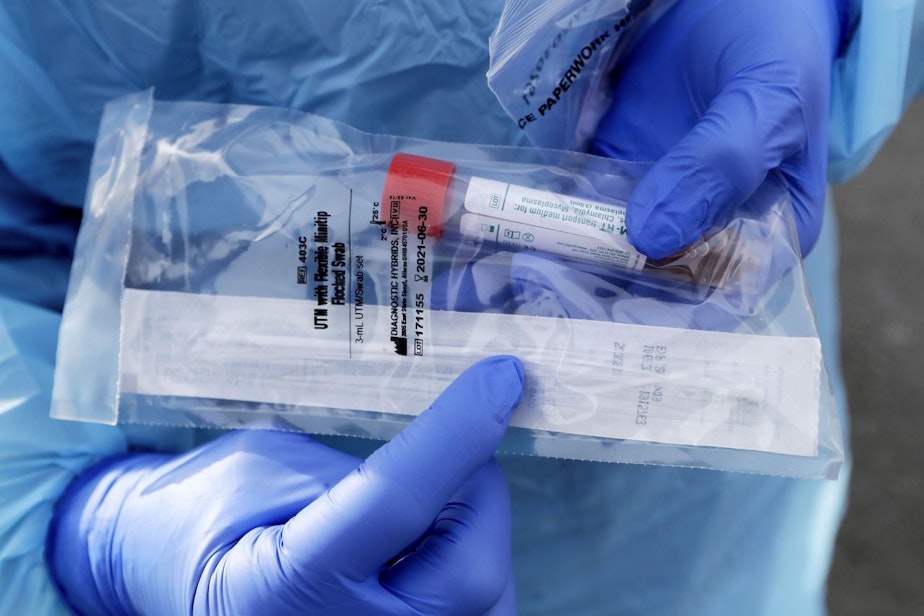10,000 cases: Who has it? Who has immunity? Where are we on testing?

It's been 45 days since Washington state's first coronavirus case linked to community spread. We're learning more this week about who's getting Covid-19 in Washington and about what needs to happen before the economy opens back up.
KUOW’s Paige Browning brings us up to speed.
This interview has been lightly edited for clarity.
What's the latest on the cases of Covid-19 here in Washington?
We're now past the 10,000 cases mark. Washington state continues to log dozens of new cases per day.
Since a week ago, we've been on a slow decline in new cases. We don't know yet if we're truly on the other end of this curve. That's why officials in Washington are so serious about this stay home order.
We have 10,000 plus cases in Washington, compared to about 1,500 in Oregon, about 22,000 in California, and in New York 188,000 cases as of the latest count.
Sponsored
There is some new data on the racial breakdown of who has been struck by Covid-19 here in Washington. What is it showing?
It's showing that the Hispanic population and the Black population are getting sick with Covid-19 at a higher rate based on Washington's population.
For example, 23% of the coronavirus patients are Hispanic, while only 13% of the state population is Hispanic. 6% of patients are Black. Only 3% of Washington state residents are Black.
On the flip side, rates are disproportionately lower among white people — but a big asterisk here. This data is reported by the State Department of Health, and about half of their data is missing race or ethnicity identifiers at this point.
Today, the governor announced that to help protect them, some inmates are going to be released. Who is he talking about?
Sponsored
He says offenders who are incarcerated for nonviolent crimes or for drug and alcohol crimes could be considered for early release soon. The focus is on vulnerable people — older inmates, for example.
Inslee has not said how many people could be released, but says that they'll commute sentences in the coming weeks and months. By the way, 11 people have tested positive for Covid-19 at the prison in Monroe. Half of those are inmates there.
There are some folks wondering if you can show some immunity to Covid-19, then that would allow you to go back to work. What are you hearing on this issue?
The FDA is allowing some labs to try this sort of antibody test, but not by itself. It must be in conjunction with other more complete coronavirus tests.
Today, we heard one of the leading researchers on Covid-19 in Washington say we are not ready to use a finger-prick blood test as a measure of who can go back to work. That researcher is Dr. Helen Chu at UW.
Sponsored
“We don't know what an antibody test at this point means, though. People who are currently infected and then recover from the virus, we don't actually know what particular antibodies are protective and how long they last for.”
Chu says that we're just not there to be using that test. Washington state is not using the finger-prick test right now, but we're expected to hear Vice President Pence make an announcement on that subject later this week.
When we do start to reopen the economy and more people are heading back to work again, is there any new information on what this new world will be here in Washington?
We don't know exactly when things will go back to normal, but it's clear that things will be much different. We heard King County health officer Dr. Jeff Duchin today on our podcast Seattle Now say when restaurants reopen it may be based on them allowing only a certain number of people at a time, and needing to space people out in the restaurant. A very different sort of world.
We're already seeing that right now with grocery stores being spaced out, one way directions in the aisles. We're not sure exactly when things will go back to normal, but we know that things will look different.
Sponsored
Listen to the interview by clicking the play button above.





